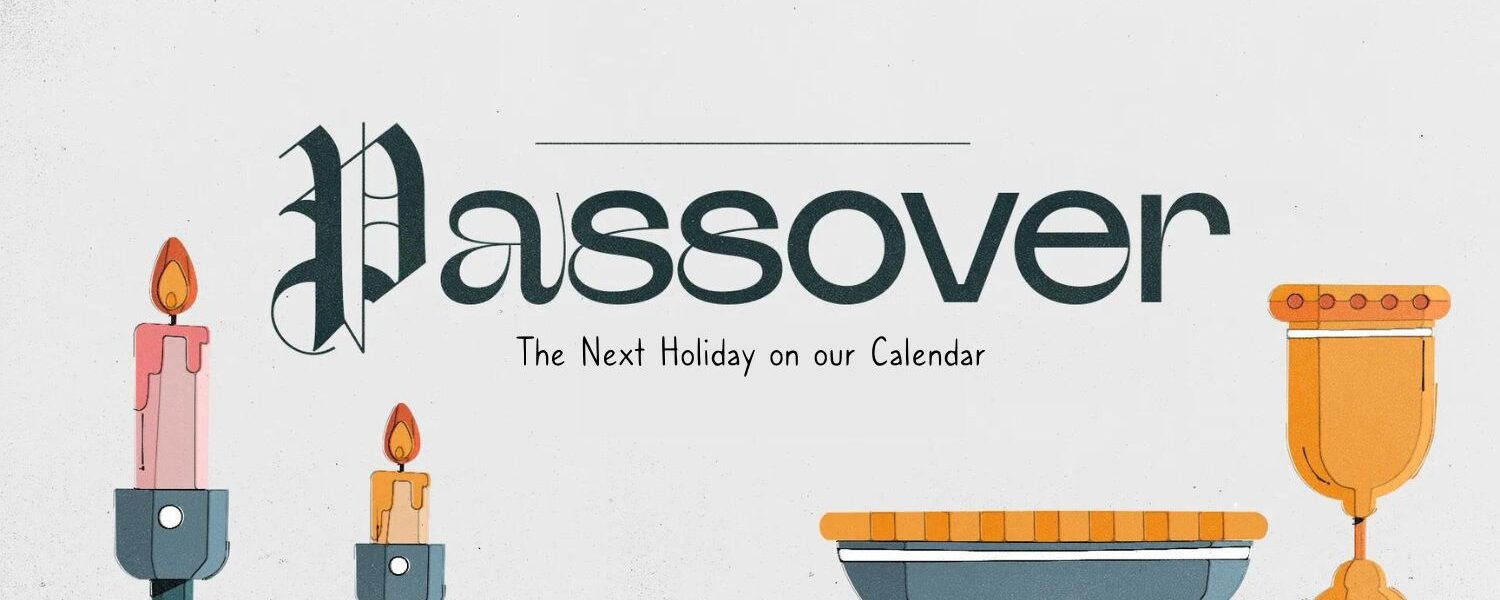Yitzhak ben Moshe, Editor/Reporter
What is Passover
The next big holiday for Jewish people is the eight-day holiday of Passover. This year, Passover will be celebrated from the 15th to the 22nd day of Nissah, 22-30 April 2024. Passover, or Pesach (in Hebrew, it is known as Pesach (which means “to pass over”) because G‑d passed over the Jewish homes when killing the Egyptian firstborn on the very first Passover eve), commemorates the emancipation of the Israelites from slavery in Egypt.
Passover is celebrated, among other things, by avoiding leaven, having a Sedar meal, eating matzah and bitter herbs, and retelling the story of Exodus.
Passover History
As told in the Bible, after decades of slavery to the Pharaohs, during which time the Israelites were subjected to backbreaking labor and unbearable horrors, HaShem saw the people’s distress and sent Moses to Pharaoh with a message: “Send forth My people, so that they may serve Me.” Despite numerous warnings, Pharaoh refused to heed G‑d’s command. So G‑d then sent upon Egypt ten devastating plagues, afflicting them and destroying everything from their livestock to their crops. When that failed to sway Pharoah to free the Jewish people, HaShem sent the tenth plague.
At the stroke of midnight of 15 Nissan in the year 2448 from creation (1313 BCE), HaShem visited the last of the ten plagues on the Egyptians, killing all their firstborn. While doing so, HaShem spared the children of Israel, “passing over” their homes—thus the name of the holiday. Pharaoh’s resistance was broken, and he virtually chased his former slaves out of the land. The Israelites left so quickly that the bread they baked as provisions for the way did not have time to rise. Six hundred thousand adult males, plus many more women and children, left Egypt that day and began the trek to Mount Sinai and their birth as G‑d’s chosen people.
Historically, before the destruction of the Temple in Jerusalem, the Passover celebration would include the sacrifice of the paschal lamb, which was roasted and eaten on the first night of the holiday.
HOW DO JEWS CELEBRATE PASSOVER
The first two and last two days (the latter commemorates the splitting of the Red Sea) are full-on holidays. We light candles, say kiddush, and eat excellent holiday meals. During this time, we don’t go to work, drive, write, or even use electric devices – even computers and cell phones are shunned during Passover. (For more information on what we can and cannot do, we will share the Laws of Yom Tov at the end of this article.)
The middle days of the holiday, these four days, are called Chol Hamoed; during these intermediate days, most forms of work are permitted.
Let’s look at other aspects of Passover in a bit more detail.
NO CHUMETZ
Within Christian circles, we’ve heard Passover called the Feast of Unleavened Bread, and we do commemorate the unleavened bread our ancestors ate when they left Egypt. During Passover, we do not eat – or even hold in our possession – any chametz from the middle of the day before Passover until the end of the holiday. (From Chabad.org, we find the following definition: Chametz is “leaven” — any food that’s made of grain and water that has been allowed to ferment and “rise.” Bread, cereal, cake, cookies, pizza, pasta, and beer are blatant examples of chametz; however, any food that contains grain or grain derivatives can often be chametz. Practically speaking, any processed food not certified “Kosher for Passover” may include chametz ingredients.)
It’s time for some levity – see what we did there. (Usually, Passover and the Christian holiday of Easter are at the same time of the year.)
Removing chametz from our home is a very severe and intensive process. Have you heard the term “spring cleaning?” This is where the term comes from. Looking for Chametz is a full-on spring cleaning during the weeks before Passover, which ends with a ceremonial search for Chametz on the night before Passover and then the burning of Chametz on the morning before Passover.
MATZAH
What do we eat if we do not have bread, which is chametz? We eat matzah—flat, unleavened bread. Eating matzah on one of the two nights of the Seder is a mitzvah, a good deed. During the rest of the holiday, it’s optional. On one of the two nights, you will eat three ounces of matzah, and that’s not always easy.
For Passover, it’s best to use handmade shmurah matzah, which has not been exposed to moisture since harvest.
THE SEDERS
The best part of Passover is the Seder, observed on the first two nights of Passover. It is a fifteen-step family-oriented tradition packed with ritual and meaning. It’s a feast, a lesson, and a time to remember where we’ve come from.
The main parts of the Seder are:
- Eating matzah
- Eating bitter herbs to commemorate the bitterness of slavered endured by our ancestors
- Drinking four cups of wine or grape juice – a royal drink in celebration of our newfound freedom
- The reading of the Haggadah, a sort of liturgy that describes in detail our story of Exodus from Egypt. (Reading the Haggadah fulfills the biblical obligation to recount to our children the story of the Exodus on the night of Passover. It begins with a child asking the four questions.)
The Four Questions mentioned above are:
- What makes this night different from all other nights?
- On all other nights, we eat chametz and matzah. Why, on this night, only matzah?
- On all other nights, we eat all vegetables. Why, on this night, maror (bitter herbs)?
- On all other nights, we don’t dip even once. Why, on this night, do we dip twice?
WHY IS PASSOVER IMPORTANT?
Passover celebrates the most remarkable series of miracles ever experienced in mankind’s history. It is a time to reach above what we see and above nature to the miraculous. Even today, we can experience a miracle.
Look at the matzah. Flat and unflavored, it embodies humility. If we rid ourselves of our inflated egos, we can tap into the miraculous well of divine energy we all have within our souls.
Will you be alone this Pesach, or don’t have someome to celebreate? Did you know that most Chabad Houses will host a Passover Sedar, and you can participate? Contact your nearest Chabad for more information!
Do you have a news tip or a story you would like to share? Click here to contact us.
Follow the Jerusalem Press on Facebook | Twitter | Instagram | Threads | TikTok
While you are here, please take a moment to consider supporting independent Jewish Media. We do not hide our articles behind paywalls or subscription fees. Click here to support us on Patreon.




